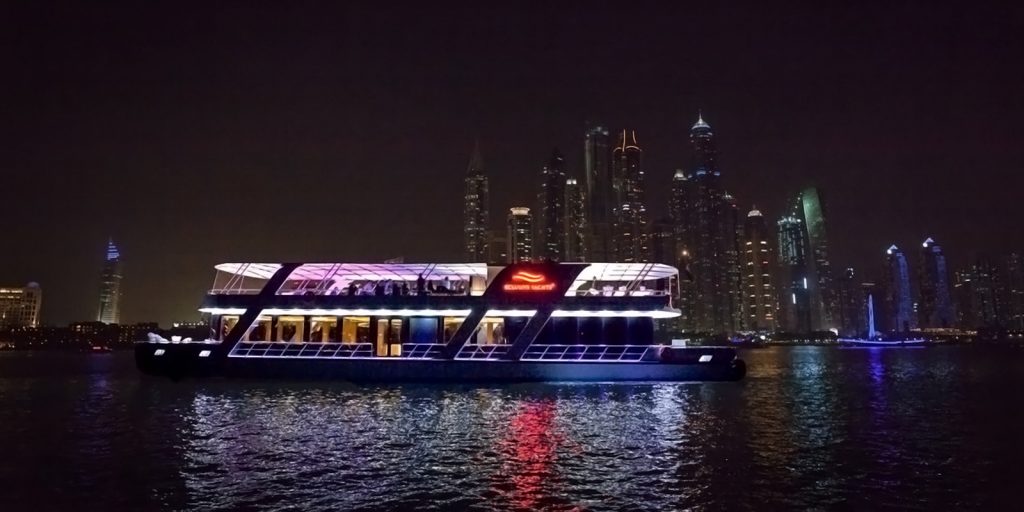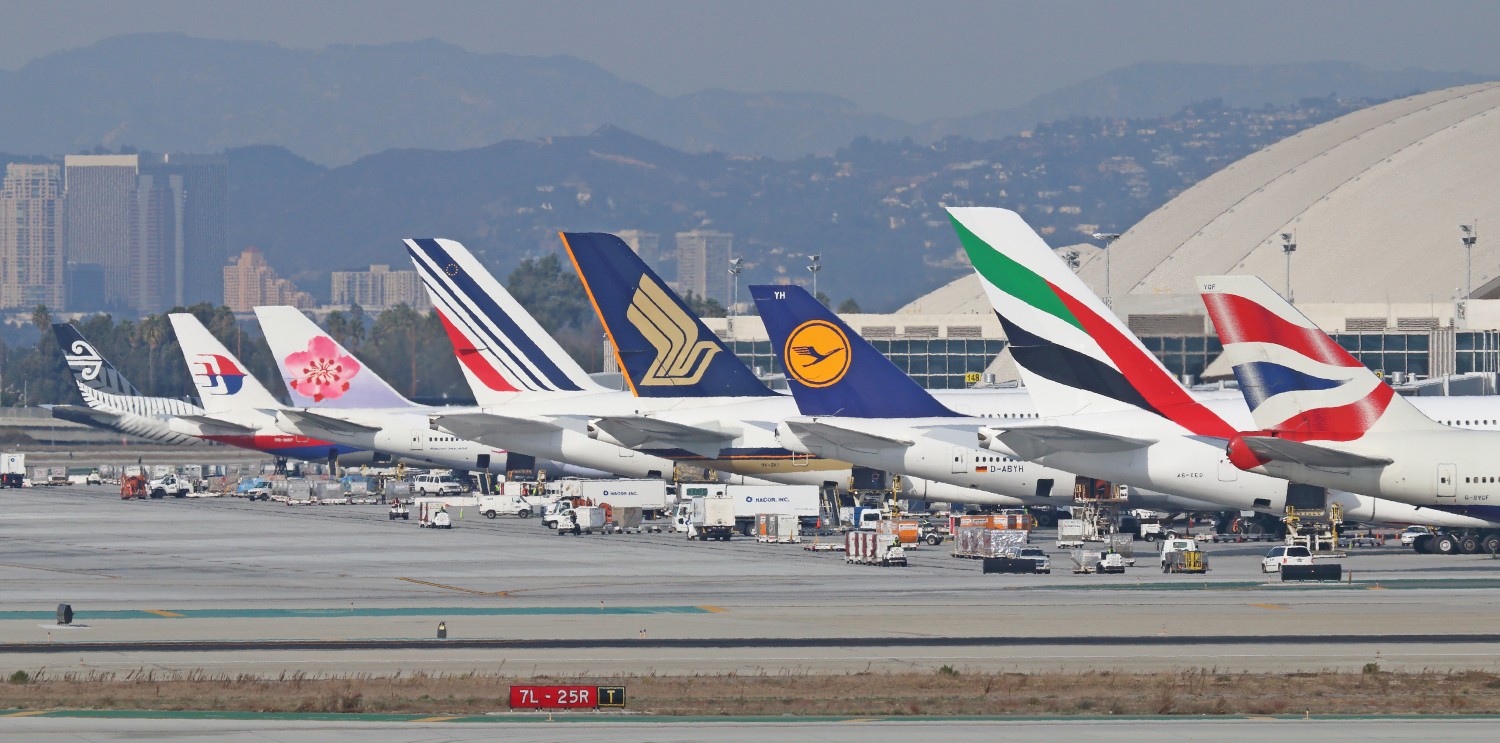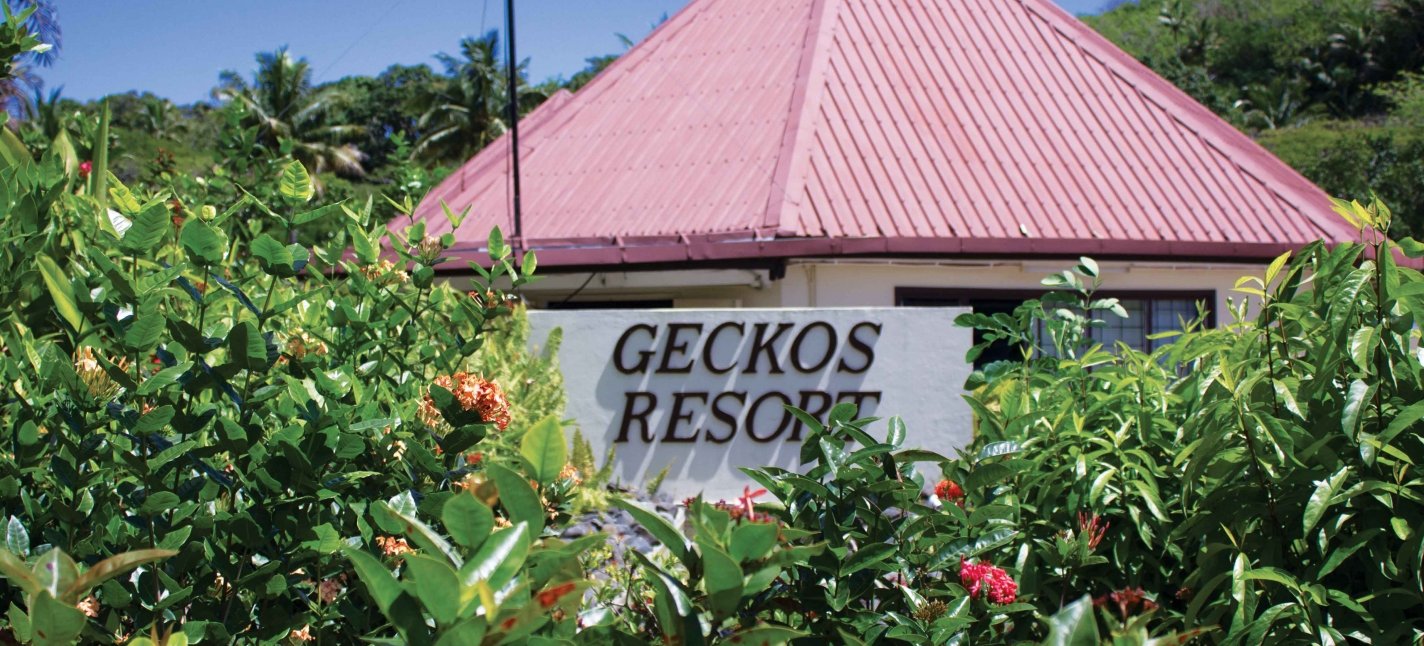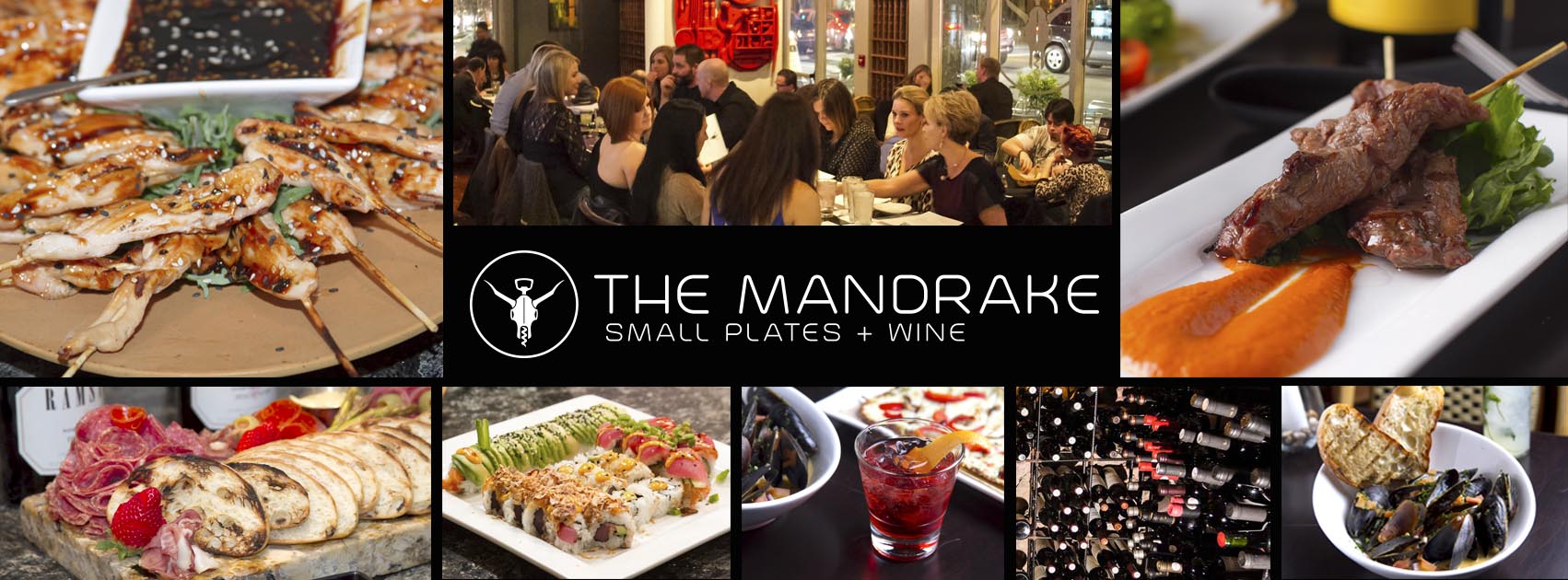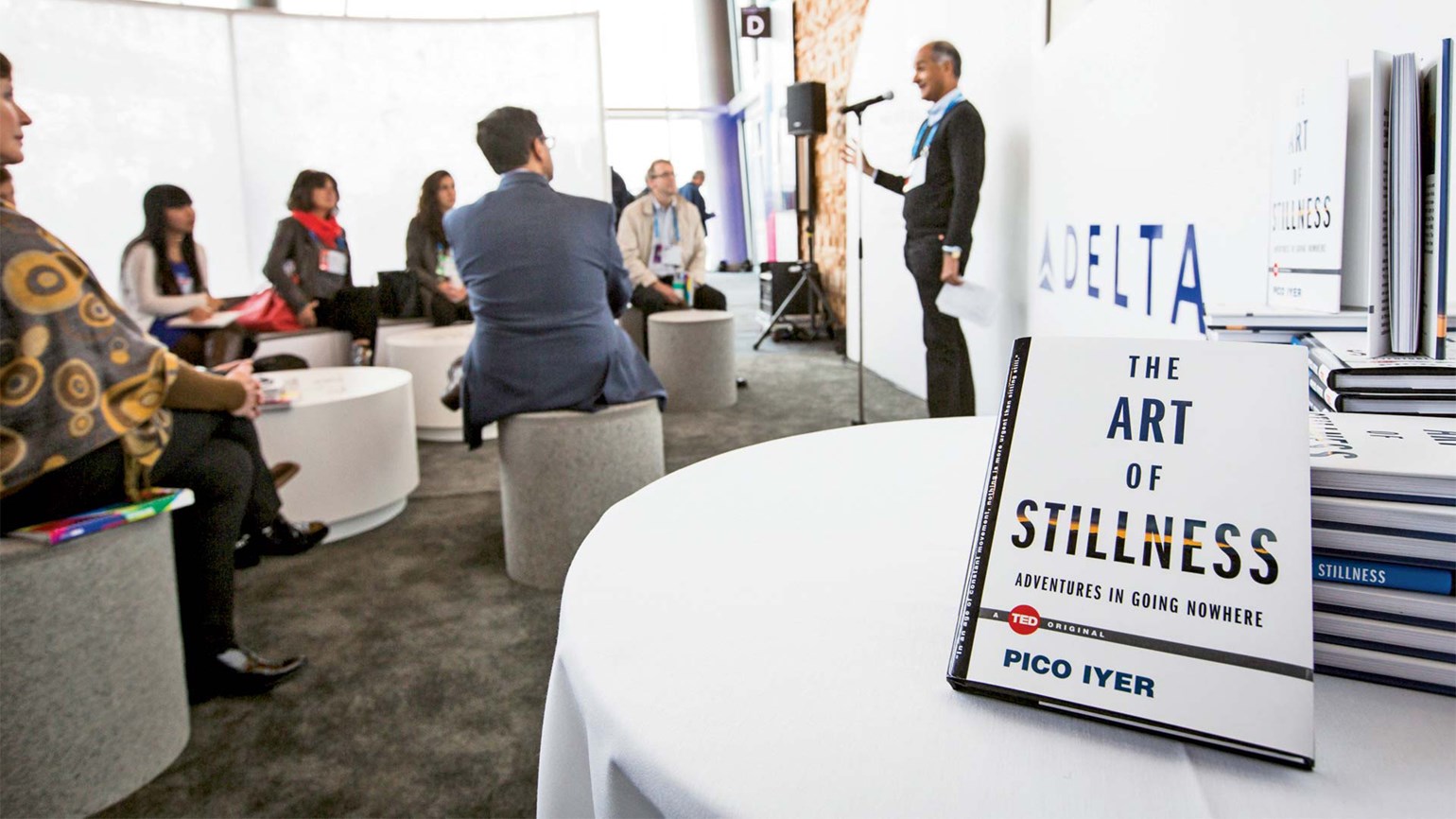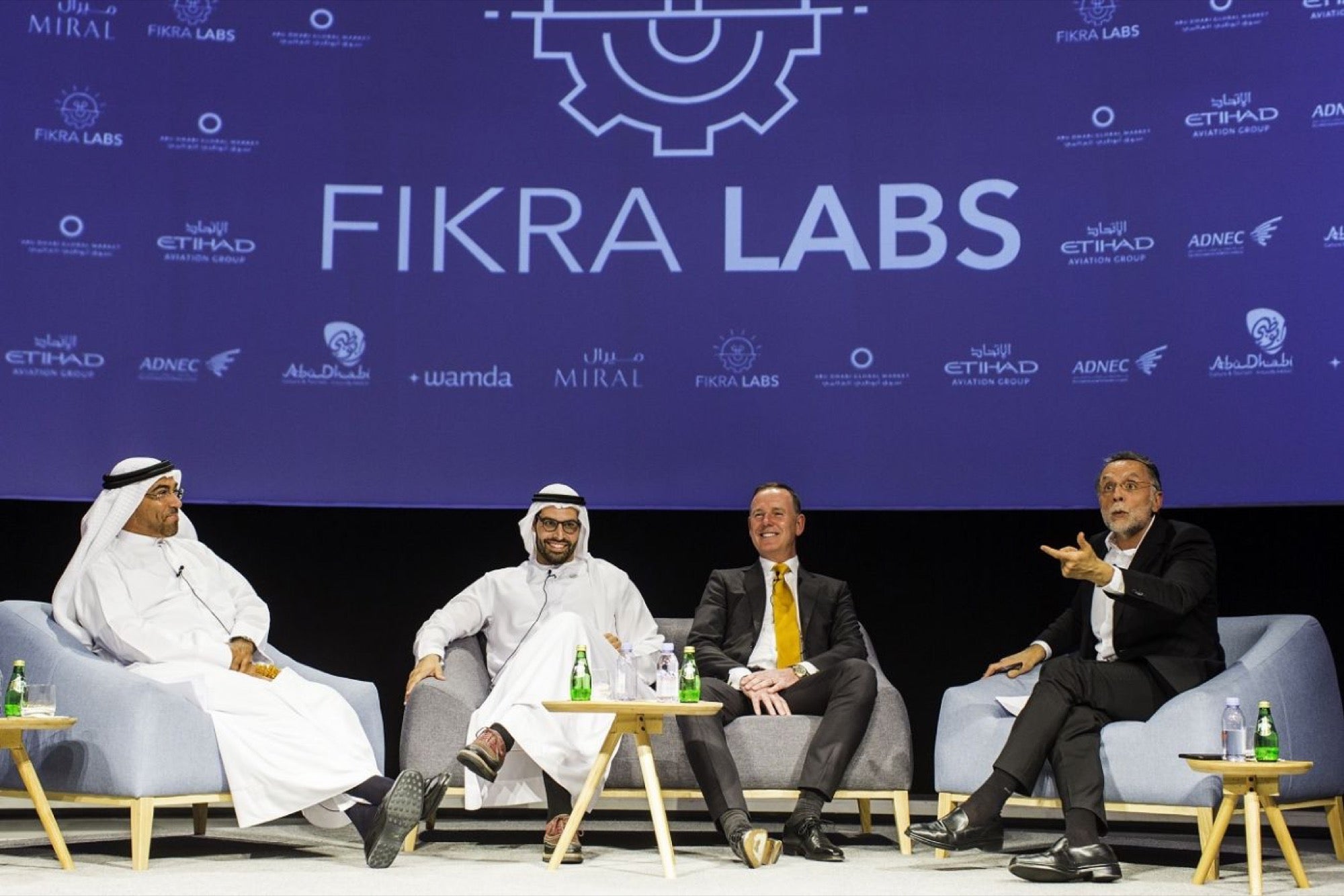Stop Over Visit
Background
The Emirate of Abu Dhabi is geographically well suited to facilitate the global flow of travelers given its location at the world’s global crossroads connecting the West and the East. 70% of the world’s population (5.2 bn people) is within an 8-hour flight radius of Abu Dhabi.
Tourism and travel is a key growth sector for Abu Dhabi’s economic ambition as the Emirate moves to develop its non-oil economy as part of the Abu Dhabi 2030 plan.
Etihad Aviation Group has an important role to play in supporting this growth. One way that Etihad can do this is by promoting Abu Dhabi as a destination and encouraging transit passengers to stopover in Abu Dhabi to take advantage of all that the Emirate of Abu Dhabi offers.
Fact & Figures
Etihad Airways carried 17m passengers in 2015 with the majority of these passengers transiting in Abu Dhabi International Airport (i.e. using Abu Dhabi as a convenient connecting point). Those transit passengers present a huge untapped opportunity for Etihad Airways to market Abu Dhabi as a destination and facilitate passenger stopovers. Encouraging Etihad’s transit passengers to make a “stopover” stay in Abu Dhabi contributes significantly to the economy of Abu Dhabi. Abu Dhabi Tourism facilitated by Etihad Airways and its partners is worth estimated to be US$ 2.2 billion to the Abu Dhabi economy in 2016 and support 29,600 jobs, according to Oxford Economics. Converting more “transit passengers” to “stopover passengers” will further increase this economic contribution.
Challenge
The challenge we would like you to address is to come up with innovative ways we could increase the penetration of stopover visits amongst our transit passengers. To give some guidance:
What we currently offer?
- Essential Abu Dhabi (Economy Class)
- Stay 2 nights and Pay for 1
- Premium Abu Dhabi (Business & First Class)
- 1 complimentary room night for every business class guest
- 2 complimentary room nights for every first-class guest
- Abu Dhabi Transit (6-12 hours Stopover)
- 1 round of 9-hole par 3 golf at Yas Links Golf Course for USD40
- Full day pool access with 1 soft beverage at Yas Links Golf Course for USD40 Premium Abu Dhabi (Business & First Class)
- Islamic City Stopover (Hajj & Umrah Guests)
- Abu Dhabi City Tour
- Hotel Stay Packages
- City Tour + Hotel Stay Packages
We are seeking ideas that target both what we sell/promote in terms of stopovers and how to communicate and convert that stopover opportunity.
Improving Loyalty
Background
Etihad Guest, the award-winning multi-airline loyalty program of Etihad Airways, Air Serbia, Air Seychelles, and Etihad Regional was launched in August 2006 and quickly established itself as one of the airline industry’s fastest-growing and most innovative lifestyle loyalty programs.
Etihad Guest now boasts more than 4 million members. The program offers members the opportunity to accumulate Etihad Guest Miles on flights with more than 40 airline partners, such as airberlin, Virgin Australia, Alitalia and Jet Airways. Members also enjoy accruing miles with global partners, ranging from hotel accommodation and car rental to retail and financial products. Etihad Guest members can redeem miles against a selection of flights on thousands of routes and thousands of products on the Etihad Guest online Reward Shop. Etihad Guest Miles can also be used to shop at more than 30 million retail outlets worldwide with PointsPay® – an unmatched loyalty proposition. Loyalty is a critical driver of increasing airline revenue, generating new customers and retaining them.
In addition to benefits such as priority check-in, priority boarding, lounge access, and excess baggage, Etihad Guest offers its tier members some unique benefits and opportunities such as:
- Exclusive access to offers and promotions from Etihad Airways and its partners.
- Earn miles on 27 Partner Airlines; and more than 150 retail, hotel, leisure and travel partners.
- Transfer miles to a shared Family Account.
- Convert other loyalty program points/miles to Etihad Guest Miles.
- Use miles for a Reward Seat to thousands of routes worldwide, and for upgrades to over 110 Etihad Airways destinations.
- No black-out periods when booking reward seats and upgrades; giving members more choices to fly when, where and how they want.
- Members in the UAE have their membership card come with walletplus™ – a reloadable, pre-paid Visa card and multi-currency wallet.
Challenge
Most loyalty programs still function as they did 20 years ago following the traditional loyalty model. We are looking for great ideas that can bring a step-change in how we deliver loyalty and can build and grow the Etihad Guest brand and database in the UAE in a cost-efficient manner. For example, this could be through:
- New innovative benefits that distinguish Etihad Guest from local and regional loyalty competitors.
- Developing more targeted marketing for important local target market segments to extend the brand.
- Designing a new digital solution that makes Etihad Guest more relevant to members’ everyday lifestyle (what do people want to hear from their program and when and how do they want to hear it?).
- Or something completely different……
We want to hear your great ideas and understand the research and benchmarking that you’ve done to support them.
When developing a proposal, please include:
- Clear definition of the product/service/idea and the requirements for Etihad Guest to set up the offer (partnerships/ new infrastructure/technology).
- Clear end to end implementation overview – Walk us through the ideal customer loyalty journey and how in today’s modern world the traditional loyalty journey can be improved and enhanced.
Ancillary Sales Opportunities
Background
In the airline industry, ancillary revenue is defined as the revenue generated from the sale of products and services beyond the air ticket. Excess baggage, upgrades to the next cabin or duty-free are some of the examples of the classic product.
Ancillary revenue has become an important financial component for airlines. Low-cost carriers (LCC) are leading in this space with ancillaries accounting for 20% + of their total revenue. Network carriers are catching up with a contribution between 3% to 10%. In the current competitive environment, ancillaries are key to compensate for the effects of overcapacity and low demand on yield.
Ancillary products have historically been divided into two categories:
- A la carte features – items that guests can add the air travel experience during or post ticket booking. Some of the typical ones include priority boarding, fees charged for changes on flight date or time, Wi-Fi or paid for seat assignment
- Commission-based products include the commissions earned by the airline on the sale of activities that complement the traveler journey. E.g. Hotel accommodation, car rental, travel insurance, etc
The list of products continues to grow to up to 30 different elements in some cases.
Additionally, the implementation of ancillaries has become a catalyst for airline retail strategy. The industry has moved from a basic fare offering with everything included to an “a la carte” list of extras, followed by the creation of bundled products in branded fares and is heading to a future of personalization on the offers and dynamic pricing as airlines get closer to their customer and get to know more about their habits. This presentation will shape the airline distribution and retail experience.
Challenge
We would like you to come up with innovative ancillary products that would complement Etihad’s existing offering and would be in line with its brand values and describe how to merchandise this product to the consumers. When developing a proposal, please include:
- Clear definition of the product/service and the requirements for EY to set up the product offer (partnerships/new infrastructure)
- Comprehensive product benchmark
- Would you include this product as an attribute on the Fare choices offering?
- Would you include this product as a loyalty program benefit?
- Clear end to end implementation overview – Walk us through the ideal customer journey; pre-booking/shopping, booking the flight, managing the booking, check-in in, at the airport, onboard, post booking. In which touch points with the guest would you offer your product? Why? How?
- Could your product be applicable for guests booking through a travel agent? How?
- Could your product be applicable for guest booking through all EY direct channels (Web, mobile app, contact center, retail offices)? Would you apply any differences between channels?
To avoid duplication:
What we currently offer?
Products & Services
|
| Change Fee |
| Cancellation Fee |
| Service Fee |
| Unaccompanied Minor Fee |
| Credit Card Surcharge |
| Extra leg room seat reservation Excess Baggage |
| Upgrades |
| Duty-Free |
| Insurance |
| Paid for lounge |
| Meet & Greet |
| Wi-Fi |
| Car Rentals |
| Activities at destination |
| Hotels |
| Visa |

Airport Reimagined
Background
The new Midfield Terminal currently being built at Abu Dhabi international airport will become Etihad’s new terminal building, and home. Once complete it will be capable of handling 30 million per annum and with a gross floor area of 700,000 sqm. It will be the largest building in the Emirate of Abu Dhabi.
Our vision for the Midfield Terminal Building is to create an industry leading ‘re-imagined’ airport experience, combining best in class operational excellence and smart technology with a remarkable guest proposition.
In line with industry trends, the objective is to increase the self-service channels throughout the guest journey.
The self-service channels are used to communicate with our guests and deliver seamless, fast-track alternatives to traditional service channels. We value the power and potential of technology to enhance the guest journey and reduce reliance on time-consuming manual processes. Smart technology is an enabler that facilitates and personalizes the travel experiences, providing the ability to understand and interact directly with our guests, creating fast track self-service alternatives.
Self-Service benefits our guests by preparing and empowering them to independently manage the experience, even when things do not go to plan.
Fact & Figures
According to the IATA fast travel initiative, the target is for 80% of guests to be offered self-service channels by 2020. 87% of middle-eastern travelers want to use self-service check-in. Etihad has recently introduced new self-service channels such as the kiosks in T3 and T1 at Abu Dhabi International Airport and the mobile app. Despite the introduction of the new technologies, only 20.5% of Etihad guest are using these. In addition, there is a lower penetration of self-service channels amongst UAE and GCC residents.
The Vision for Midfield
The Vision for Midfield is to create a world-class Airport that delivers a remarkable and inspirational passenger experience with the highest levels of operational efficiency. It will incorporate the latest technologies to deliver an enhanced passenger experience with a focus on delivering greater ‘speed and ease’ by automating many of the manual processes such as check-in, immigration, and boarding.
We want our guests to spend less time in queues and more time either enjoying the amazing facilities the airport will have to offer or taking advantage of stopover opportunities offered by Hala in Abu Dhabi.
The target set by the business is for 65% of all departing passengers at Abu Dhabi to be using Self-Service by 2018. The Transfer experience is another opportunity for Etihad to use Self Service to improve the guest experience and deliver greater speed and ease. Approximately 12% of our transferring guests require additional assistance during Transfer.
These could be simple transactions such as getting a new boarding card printed through to more complex ticketing transactions if a guest has missed their connecting flight. Currently, the only service point is the Transfer Desk. During peak times or during a disruption, our guests can wait in lengthy queues for even the most basic ‘where do I go’ inquiry.
Our target for Midfield is to resolve 95% of all Transfer inquiries in 2018 using Self Service channels – using channels such as the Mobile App and the Service Kiosk to ‘push’ information to our guests and minimize the requirement for guests to visit a Transfer Desk.
Challenge
Whilst we observe a high take-up rate of mobile technology by UAE residents there is a relatively low penetration of self-service relative to other regions such as Europe, North America, and Australia.
We know that Self Service delivers ‘speed and ease’ but why is there such a low uptake of Self Service in the UAE and how do we overcome it at Midfield?
The challenge we would like you to address has multiple parts:
- Identify the barriers to Self Service adoption in the UAE and local market trends that would support the uptake of Self Service.
- What are the barriers to Self Service adoption in the UAE – cultural, demographic, technological, etc?
- Benchmark against other industries in the UAE – government, retail, banking – what are the key learnings?
- Benchmark against other airlines in the GCC region – focusing on low-cost carriers such as Flydubai, Flynas, and AirArabia – what are the key learnings?
- Based on the analysis above, what recommendations would you give to the Midfield Design team on the integration of Self Service technology – consider for Economy, Business & First Class?
- Define a Marketing and Communication Plan for the Rollout of Self Service at Midfield.
- Key Marketing messages.
- Communication channels.
- Promotion and incentive strategy.
- Identify new ideas and next-generation technologies that enable self-service (such as ‘security tunnels’ as promoted by IATA) that help to overcome the ‘self-service’ barrier and that could be incorporated at Midfield to further enhance the guest experience and deliver greater operational efficiency

Youth Engagement
Background
Etihad Airways offers a unique environment driven by excellence and defined by innovation, growth and forward thinking. We are passionate about our people and their development. Consistently driving change in our industry, we empower our employees to not only transform the travel industry but to take the lead in developing their careers. We are inspired by unique perspectives, diverse leaders and creative thinkers; we lead the way in offering the best to our customers and our employees.
Etihad Airways conducted a workshop on Employer Value Proposition (“EVP”) in November 2014. Employees from several divisions took part in a discussion followed about which attributes made up the EVP. Having grouped the attributes that were deemed the best fit into three major topics, the participants were asked to provide examples, stories, and reasons to believe for each topic. The following information presents the Etihad Airways Employer Value Proposition (“EVP”) challenges including explanations for each challenge along with examples to support them.
GROWTH: “A world of growth, development and endless opportunity”
As the national airline, Etihad Airways provenance is the vibrant city of Abu Dhabi. In many ways, our growth during the last 10 years mimics the incredible journey of Abu Dhabi over the last half-century. And just as our region thrives on a strong vision of the future, we have set our own goal of being the best airline and travel company in the world.
While unique features such as the new ‘Residence’ three-room in-flight apartment have significantly raised the bar in luxury travel, it is not in our DNA to rest on our laurels. We will continue to innovate and grow; in terms of the number of guests, the size of our network, the reach of our equity partner network as well as revenues and profits. In line with our corporate growth initiatives, we are committed to empowering our employees to grow and develop their careers. For those candidates looking for an environment where change is constant, innovation is abundant and challenges are frequent, Etihad is the ideal work environment.
Possible descriptors and claims:
- “We are empowered by a can-do attitude”
- “A pioneer in our industry -we seek talent that will grow and develop with us”
- “Elevate your career”
- “We provide opportunities for our people to grow with us”
- “Passionate about our growth”
EXCELLENCE: “A thrilling world of excellence”
Everything about our business reflects our values and the rich heritage of Abu Dhabi. Embedded in our culture of hospitality, we take care of our guests with both care and respect. This zeal to better understand our guests’ needs and to deliver the world’s most remarkable travel experiences, leads us to strive for excellence in all that we do.
There is a thrill working for a global leader in the airline industry that is consistently elevating the standard of excellence in the industry. Think of the opportunities to see the world by making use of the very generous employee travel benefits or by relocating to one of the many vibrant travel hubs around the world for a year or two.
Most organizations are not on a quest to change the world the way Etihad is. Being committed to excellence means constantly seeking to improve and exceed expectations. There is immense pride in knowing that our work has a positive impact on the lives of thousands of people every day.
Possible descriptors and claims:
- “Leading the way with excellence”
- ”Leading in excellence”
- “Passionate about your excellence”
- “Distinctive excellence”
- “We foster collaboration, growth, and development and we recognize excellence”
INNOVATION: “Leading change through innovation”
One aspect of exceeding guests’ expectations has to do with constantly rethinking the travel experience. Whether it is using a full catwalk to showcase the new uniforms to the press or introducing a nanny service in-flight we are always trying to reimagine our work. The reason we have been so successful in this is the fact that there is an openness to new input and ideas throughout the organization, regardless of the level of seniority. We want our employees to inspire us with their ideas and we employ our employees to drive change, reimage and redefine the travel industry.
Also, we pride ourselves on learning & development capabilities that are probably the strongest of any airline worldwide. The environment at Etihad is fast-paced, energetic and creative and we are looking for candidates who truly appreciate and thrive in that kind of environment.
Possible descriptors and claims:
- “We can take you further”
- “Our people help us reimage the travel experience”
- “Redefining the industry we work in”
- “We are open-minded and inspired by people that bring ideas that make a positive difference”
- “Transforming our industry -we lead the way in offering the best to our customers”
- “Inspire us with your ideas: we empower our employees to drive change, re-imagine and redefine the travel experience”
Welcoming the millennial generation to Etihad Airways
Etihad Airways is focused on attracting the future leaders of the United Arab Emirates and is committed to the 2030 vision of Abu Dhabi. Like most other global brands, we are very interested in aligning our Employer Value Proposition (“EVP”) to meet the growing needs of the millennial generation. Developing young leaders is of paramount importance.
Facts and Figures
- According to the latest research from Gallup*, 55% of Millennials are not engaged at work. Leaders at Etihad Airways feel a sense of purpose surrounding millennial engagement.
- Millennials change jobs more often than do those of any other generation, and six in 10 say they are currently looking for new employment opportunities.
- Millennials and non-millennials have the same expectations of their managers: constant communication, accountability, and clearly established expectations.
- Millennials are less engaged in the workplace than are their older colleagues, and they are more likely to be categorized as “not engaged.” This lack of engagement is costing organizations too much in lost productivity.
- Opportunities to learn and grow at work are highly important to millennials when seeking out new jobs or deciding to stay in current ones.
- Millennials want to talk with their managers and not always just about work. However, they are less comfortable approaching their managers to talk than are their older colleagues.
Challenge
- How do we effectively communicate our Employer Value Proposition (“EVP”) to millennials and differentiate the brand themes?
- How do we use our Employer Value Proposition (“EVP”) to attract the right millennials to consider working for Etihad Airways?
- Develop a communication strategy and select the most effective communication channels to communicate the Employer Value Proposition (“EVP”) to millennials.
- What are the major changes we will need to make to attract, retain and engage millennials at Etihad Airways?
*” How Millennials Want to Work and Live,” Gallup Organization, 2016.
Out of the box
The ‘Out of the Box’ category allows you to submit an idea that doesn’t fit under any of the other given categories.
You can submit your own innovative idea that will fit into any area of the Etihad Aviation Group. Whether it be a product or service, this category gives you the opportunity to use your imagination and come up with your own unique concept.
Challenge
Your product or service should contribute towards an increase in revenue for the company, enhance the customer experience, and/or reduce costs.
Specialist Cargo
Background
Etihad Cargo is USD 1 bn plus business and one of the top cargo carriers in the world. Etihad Cargo transports all manner of cargo products including specialist cargo and “AVI” which is particularly high yielding and profitable. AVI is a term used within the airline industry which defines all live animals that will fly onboard an aircraft. Live animals can range from dogs, cats, horses, cattle, sheep, birds, fish, and reptiles to wild animals (lions, tigers, zebra, ox, gazelle, onyx, apes, monkeys, etc.). A summary of one of the AVI movements that Etihad Cargo takes part in is below.
Expatriates living within the Emirate of Abu Dhabi currently make up 80% of the population (approx. 2.8 million) which is continually growing to meet the demands of a growing workforce within the UAE. As the expatriate population continues to grow so too does the ownership of pets which mainly consist of dogs and cats. There are approximately 250,000 registered cats and dogs within Abu Dhabi. Within the expatriate community, there is a large turnover of people continually moving in and out of Abu Dhabi and, as their cats and dogs are considered part of the family by most pet owners if they decide to move back to their home country they will also transport their pet back. There are also many cases of family’s where there is one sole income provider and during the school summer vacation period, some families will leave up to 3 months of the year to go back to their home country with their pet. Etihad Cargo plays a vital role in the transportation of pets to every corner of the globe in order to maintain the safety and wellbeing of all animals.
Concepts for AVI
The challenge we would like the students to undertake is to develop ways to increase Etihad Cargo’smarket share within the UAE AVI market.
Current Challenges
- Lack of awareness that Etihad Cargo transports live animals on a daily basis around the globe.
- Abu Dhabi is not considered as a hub to transport live animals.
- The lack of guidance with the Abu Dhabi ministries and Veterinarians to support and help guests with the transportation of their pets.
- Booking process internally within Etihad Cargo.
- The export process within the Abu Dhabi hub at the airport offering support and guidance for pets.

Environment
Background
Sustainable development is a key factor in Abu Dhabi’s economic vision for 2030. One key pillar of the Abu Dhabi Environment Vision 2030 is improving waste management.
Waste management and reduction is a core part of Etihad Aviation Group’s commitment to operating sustainably and responsibly, For example, Etihad Airways Services catering facility at Abu Dhabi International Airport has extensive procedures for segregating reusable and recyclable materials. Cabin Crew collects cans, glass, plastic bottles and newspapers onboard for recycling on the ground. Obsolete uniforms have been transformed into yarn to make carpets, and marketing banners have been turned into tote bags.
However, the recycling of textiles, in particular, remains limited and has largely been on a one-off, ad hoc basis. Etihad Aviation Group is seeking to improve its efforts in this area to avoid sending unnecessary waste to landfills, use its resources more productively and potentially increase revenue.
Fact & Figures
On average, 95% of textiles – including worn and torn – can be recycled, yet only 15% gets donated or recycled.
With 121 aircraft and 17m passengers carried by Etihad Airways, there is an enormous volume of products flowing through the supply chain at any one time.
Challenge
The challenge we would like you to address is to come up with an innovative, practical and sustainable use for one or more of obsolete textiles to reduce scrap to landfills.
We are seeking ideas for a way to recycle or re-use fabrics in a way that will 1) fit our brand, 2) are economically sustainable and 3) meet a need of the business or stakeholders in the wider business context.
This may be achieved by producing a useful item that can be donated to charities, a product directly utilized by the business that can be sold or given away to generate revenue, or a meaningful partnership that effectively utilizes the fabric in an environmentally or socially responsible way.
Ideally, this project would stimulate the local economy and support the development of the infrastructure for future projects of this nature in Abu Dhabi.
Opportunities:
Potentially used materials include:
- Inflight blankets.
- Linens such as napkins, table cloths, bedsheets, and pajamas.
- Chair fabrics.
- Camel and cow leather.
- Polypropylene marketing banners.
- Expired life jackets and life rafts.
- Obsolete Cabin Crew, Pilot and Ground uniforms.
Challenges:
- Security requirements meaning that most materials cannot be donated in their current state
- Lack of local infrastructure for bulk textile recycling.
- The high price of artisan workmanship.
- High turnover of processed materials and fabrics.
- Cargo costs of shipping internationally.
- Different waste management practices between emirates.
- Coordination across multiple business units involved in the supply chain (Procurement, Marketing, Corporate Affairs, Engineering).
this content only for knowledge base





